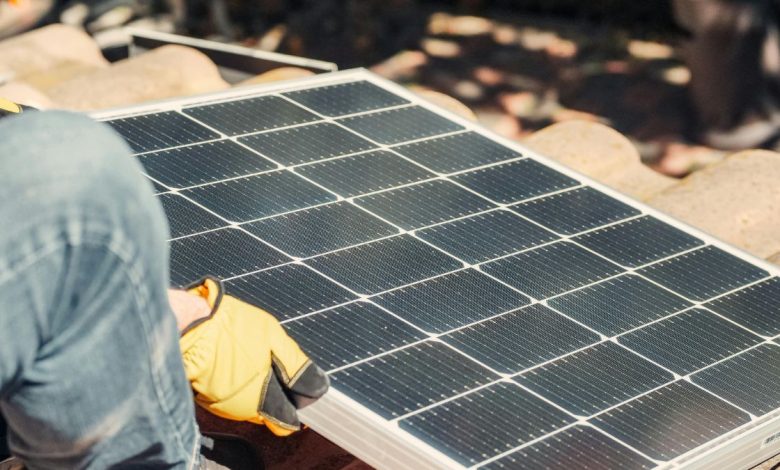Eskom Requires Your Rooftop Solar System to Be Registered: Full Details

Eskom has recently mandated that all rooftop solar systems must be registered. If you’re considering or already using a rooftop solar system, this change directly impacts you. The registration is a critical step to ensure that these systems are safely integrated into South Africa’s national power grid.

Here is everything you need to know about this new requirement, including timelines, costs, and how it affects homeowners in Gauteng.
Why Eskom Requires Rooftop Solar Systems to Be Registered
The decision to require rooftop solar systems to be registered stems from Eskom’s efforts to better manage South Africa’s electricity grid. As more South Africans turn to solar power to combat power outages and rising electricity costs, it is crucial to regulate these systems. Proper registration ensures compliance with safety and quality standards and enables Eskom to monitor the flow of power.
According to the National Energy Regulator of South Africa (NERSA), any solar system connected to Eskom’s grid needs to be registered. This regulation applies to all small-scale embedded generation (SSEG) systems, even if they don’t export power to the grid. The goal is to avoid system overloads, prevent safety hazards, and improve the efficiency of energy distribution.
ALSO READ: Eskom Responds to Power Setback Amid Winter Load Shedding
What You Need to Do to Register Your Rooftop Solar System
If your rooftop solar system is connected to the Eskom grid, you must register it. The process is fairly straightforward, but it requires attention to detail. Here’s a step-by-step guide:
- Ensure Compliance: Your solar installation must meet South Africa’s electrical safety standards (NRS 097-2). You will need a Certificate of Compliance (CoC) for the system’s internal wiring.
- Submit Your Application: You must apply to Eskom for registration. This involves submitting a form and providing relevant details, including the system’s specifications and capacity.
- Smart Meter Installation: Eskom will install a smart meter to monitor energy usage. This installation is part of the registration process.
- Wait for Confirmation: Once registered, you will receive confirmation from Eskom, and your system will be officially integrated into the grid.
For homeowners in Gauteng, this process should be initiated as soon as possible to avoid any potential issues.
How Much Does It Cost to Register Your Solar System?
Initially, Eskom had planned to charge fees for the registration of rooftop solar systems. However, they have recently announced a fee waiver for systems with a capacity of up to 50 kVA. This waiver will remain in place until March 2026. For residential systems with a typical capacity of 16 kVA, this could mean savings of up to R9,132.
While the exemption is beneficial, homeowners are encouraged to register their systems soon to avoid any fees once the exemption period ends. After March 2026, standard registration and connection fees will apply.
What Happens After the Exemption Period?
Once the exemption period expires, Eskom will start charging for the registration of rooftop solar systems. Homeowners will be required to pay for the following:
- Application Fees: A fee for submitting the registration request.
- Meter Installation Fees: Charges for the smart meter installation, if applicable.
- Connection Fees: Costs related to connecting your system to the grid.
It’s crucial to take advantage of the current exemption period, as these fees can add up significantly. The sooner you register your system, the less you will pay.
How Does This Affect Gauteng Residents?
For Gauteng residents, the rooftop solar system registration process aligns with Eskom’s national initiative. While municipalities have their own processes, those connected to Eskom’s network are subject to the same registration requirements. This is particularly important for Gauteng, which has seen an increase in solar installations due to frequent load shedding.
Eskom’s push for solar system registration also aims to improve grid stability in urban areas, where the demand for electricity is high. By ensuring that solar systems are compliant and properly integrated, Eskom can better manage the energy flow and reduce the risk of blackouts.
Expert Insights on Rooftop Solar System Registration
According to the Department of Mineral Resources and Energy (DMRE), proper registration of solar systems is essential to safeguard South Africa’s energy future. “As more homeowners adopt solar power, ensuring that these systems are registered and meet safety standards helps secure the grid and prevent potential hazards,” said a DMRE spokesperson.
Additionally, energy experts warn that failure to register systems could result in severe consequences. “Unregistered systems may not be covered by insurance in case of damage, and they could potentially overload the grid, leading to disruptions,” noted an energy consultant in a recent interview.
ALSO READ: Why LED Lamps Are a Must-Have in Every Gauteng Household This Winter
The Long-Term Benefits of Rooftop Solar System Registration
Registering your solar system offers several long-term benefits:
- Grid Stability: Eskom will be able to monitor the energy generated and consumed, leading to better grid management.
- Safety and Compliance: Registered systems comply with safety standards, reducing the risk of faults and accidents.
- Increased Property Value: Homes with solar power systems are seen as more valuable, particularly if they are fully integrated into the grid and meet legal requirements.
Act Now to Register Your Rooftop Solar System
Eskom’s requirement for the registration of rooftop solar systems is a crucial step in managing South Africa’s electricity grid. By registering your system, you are ensuring both safety and efficiency. The fee exemption until March 2026 makes now the best time to act.




